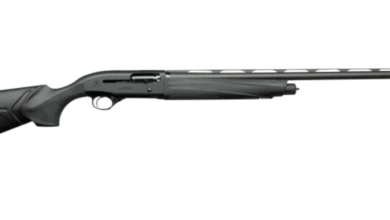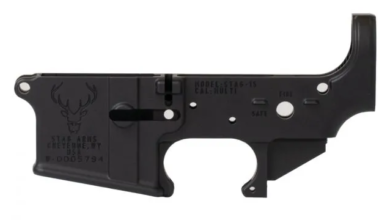Do You Need a Concealed Carry Permit in Utah? – Elevated Gunworks

In 2021, Utah implemented a permitless carry law, commonly referred to as “constitutional carry.” This law permits residents aged 21 and older to carry a concealed firearm without needing a permit. Under this legislation, eligible residents can exercise their Second Amendment rights without undergoing the permit application process.
However, this law does not mean every resident is automatically allowed to carry. Utah’s constitutional carry law includes specific eligibility criteria, such as having no criminal record or disqualifying mental health conditions. Failure to meet these requirements can lead to legal consequences for those carrying a concealed firearm without a permit.
The Benefits of Obtaining a Concealed Carry Permit
Although a permit is not required for in-state concealed carry, obtaining one still offers several advantages. For example, a Utah Concealed Firearm Permit (CFP) allows holders to carry concealed firearms in other states with reciprocity agreements. This benefit is particularly useful for frequent travelers or business professionals crossing state lines.
Additionally, having a concealed carry permit provides legal documentation and demonstrates the completion of firearm safety training. Permit holders are often viewed as responsible gun owners, which can be advantageous in legal situations involving firearms.
Permit Requirements and Eligibility
To obtain a Utah Concealed Firearm Permit, applicants must meet specific eligibility requirements. These include being at least 21 years old, a U.S. citizen or legal resident, and legally permitted to own a firearm under federal and state laws. Applicants are also required to complete a firearms training course covering Utah’s gun laws, safety protocols, and handling procedures.
Once the training is complete, individuals can submit their applications and fees to the Utah Bureau of Criminal Identification (BCI). Typically, the BCI processes applications within 60 days, after which approved applicants receive their permits by mail.
Concealed Carry in Restricted Areas
Even under Utah’s constitutional carry law, there are areas where concealed firearms are prohibited. These include public schools, correctional facilities, courthouses, and secure airport zones. Private businesses and property owners also have the right to restrict firearms on their premises, and their rules must be respected.
Furthermore, Utah law prohibits carrying a firearm while under the influence of drugs or alcohol, whether prescription or recreational. This restriction applies to both permit holders and those carrying without a permit, reinforcing the state’s emphasis on safety and responsible firearm ownership.
Reciprocity with Other States
For those traveling out of state, having a Utah concealed carry permit can be especially beneficial. Currently, over 30 states honor Utah’s permit, allowing holders to legally carry across state lines. However, each state enforces its own regulations, so travelers must familiarize themselves with the laws of the states they visit.
Reciprocity agreements save gun owners the trouble of applying for multiple state permits. States like Nevada, Arizona, and Colorado, for instance, recognize Utah’s concealed carry permit, making it easier for permit holders to carry firearms during interstate travel.
Concealed Carry Permit Renewal
Utah Concealed Firearm Permits are valid for five years and must be renewed upon expiration. The renewal process involves submitting an updated application and renewal fee to the BCI. Typically, permit holders do not need to retake their training course but may need to provide updated information.
To prevent lapses in legal status, permit holders can renew their permits up to 90 days before the expiration date. The BCI also sends reminders to ensure timely renewals. Keeping the permit active ensures continued legal compliance both within Utah and in states with reciprocity agreements.
Non-Residents and Utah Permits
Utah extends its concealed carry permits to non-residents, making it an attractive option for out-of-state individuals seeking broader legal coverage for carrying firearms. Non-residents must meet the same eligibility requirements as Utah residents and complete a firearms training course.
This feature benefits non-residents by providing access to Utah’s reciprocity agreements. Even if their home state does not have such agreements, a Utah permit allows them to carry concealed firearms in states that recognize Utah’s permit.
Utah’s Stance on Open Carry
Utah law also allows open carry of firearms without a permit, provided individuals comply with state regulations. However, open carry is subject to restrictions similar to concealed carry, such as prohibitions against carrying in restricted areas or while intoxicated.
For individuals who wish to open carry but also desire flexibility for concealed carry when traveling, obtaining a Utah concealed carry permit can provide added versatility.
Conclusion: Is a Permit Worth It in Utah?
While Utah’s constitutional carry law provides residents with significant freedom, obtaining a concealed carry permit offers additional benefits. A permit allows holders to carry in other states, provides legal documentation of firearm safety training, and offers added legal protections.
For Utah residents who frequently travel or prefer the assurance of legal clarity, a concealed carry permit is a worthwhile investment. Elevated Gunworks provides resources and quality firearm products to support responsible gun ownership and help residents navigate Utah’s firearm laws effectively. For more information, visit Elevated Gunworks to explore the options.





